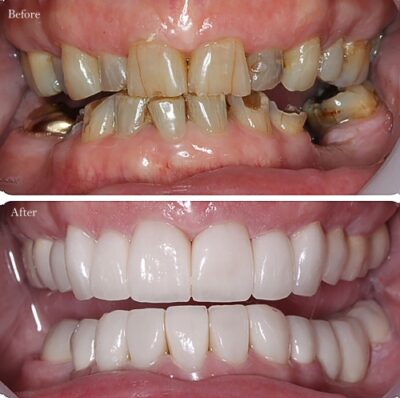The 8-Second Trick For Dental Sense
Table of ContentsTop Guidelines Of Dental SenseNot known Facts About Dental SenseThe Best Guide To Dental SenseHow Dental Sense can Save You Time, Stress, and Money.
are medical tools operatively implanted into the jaw to bring back a person's capability to eat or their look. They offer assistance for fabricated (phony) teeth, such as crowns, bridges, or dentures. When a tooth is lost due to injury or disease, a person can experience complications such as rapid bone loss, malfunctioning speech, or changes to chewing patterns that result in pain.Dental implant systems are composed of a dental implant body and dental implant joint and might likewise consist of an abutment fixation screw. Same day dental implants. The oral implant body is surgically inserted in the jawbone in location of the tooth's root. The dental implant joint is normally affixed to the dental implant body by the joint addiction screw and prolongs with periodontals into the mouth to support the attached man-made teeth
(https://www.tripadvisor.in/Profile/dentalsense1)Framework of The Oral Implant System choosing dental implants, talk to your oral company about the possible benefits and dangers, and whether you are a prospect for the procedure. Things to consider: Your total health is an essential consider determining whether you are a good prospect for oral implants, for how long it will certainly require to heal, and how long the implant might remain in area.
Smoking might affect the recovery procedure and decrease the long-lasting success of the implant. The healing process for the dental implant body may take numerous months or longer, throughout which time you normally have a short-lived abutment in area of the tooth. the dental implant procedure: Meticulously comply with the dental hygiene guidelines provided to you by your oral provider.
Facts About Dental Sense Uncovered
Implant failing can lead to the demand for an additional medical procedure to take care of or change the implant system. Brings back the ability to chew Recovers cosmetic look Assists maintain the jawbone from shrinking due to bone loss Maintains the health and wellness of the bordering bone and gums Assists maintain adjacent (close-by) teeth secure Boosts lifestyle Damages to surrounding all-natural teeth throughout implant placement Injury to the surrounding cells during surgical treatment, such as sinus opening Injury throughout surgical procedure (for instance, fracture of bordering jawbone) Insufficient feature, such as really feeling like the teeth do not bite together normally A feeling that the tooth hangs or turning in place arising from an abutment screw loosening Implant body failure (looseness of the implant body) due to systemic infection, which may be more probable in individuals with uncontrolled diabetes as a result of local infection in bone and gums supporting the implant body due to postponed healing, which may be most likely in clients that smoke Difficulty cleaning up the gums around the implant, leading to poor dental hygiene Neglected gum disease Post-surgical pins and needles as a result of nerve impingement or damages Constantly alert healthcare suppliers and imaging technicians that you have dental implants before any type of magnetic resonance imaging (MRI) or x-ray treatments.
FDA is not mindful of any negative occasions reported for MRI or x-ray procedures with oral implants. Oral implants systems are generally made from materials that adhere to international consensus criteria of the International Company for Standardization (ISO) or ASTM International. These requirements have details of what makes a safe product.

An oral implant is a framework that replaces a missing tooth. With screw-like tools, the doctor inserts a dental implant into the jawbone, and it serves as a support for a synthetic tooth, called a crown. A device called a joint links the man-made tooth to the oral implant. The crown is personalized to fit the person's mouth and match the color of their teeth.
The Ultimate Guide To Dental Sense
Some individuals are not qualified for dental implant surgery. It is for oral doctors to operate individuals with: intense illnessuncontrollable metabolic diseasebone or soft cells condition or infectionIf these issues are settled, a person can have the surgery. In, oral cosmetic surgeons avoid running on individuals with: If individuals with any of the above go through dental implant surgical treatment, there is a higher threat of the dental implant failing.

Oral dental implant surgery is a tailored process. Give you time to heal. Attach the post and last crown, bridge or denture.
Next, your specialist will meticulously position the oral implant into your jaw. Finally, your specialist will rearrange your gum tissues and shut the cut with stitches. If your implant is near the front of your mouth, your dental practitioner will make a momentary tooth for you to use until you recover. In this way, you won't have a void in your smile while you recover.
Getting My Dental Sense To Work
During the recovery phase, your jawbone ought to fuse to the oral implant. This procedure can take anywhere from three to nine months.
Once your dental implant heals, your dental practitioner can attach the joint (little connector post) and your last remediation (crown, bridge or denture). This normally takes about one hour to finish and might require a second minor surgery. You should not really feel any type of pain throughout your oral implant procedure since your company will use medicine to numb your periodontals.